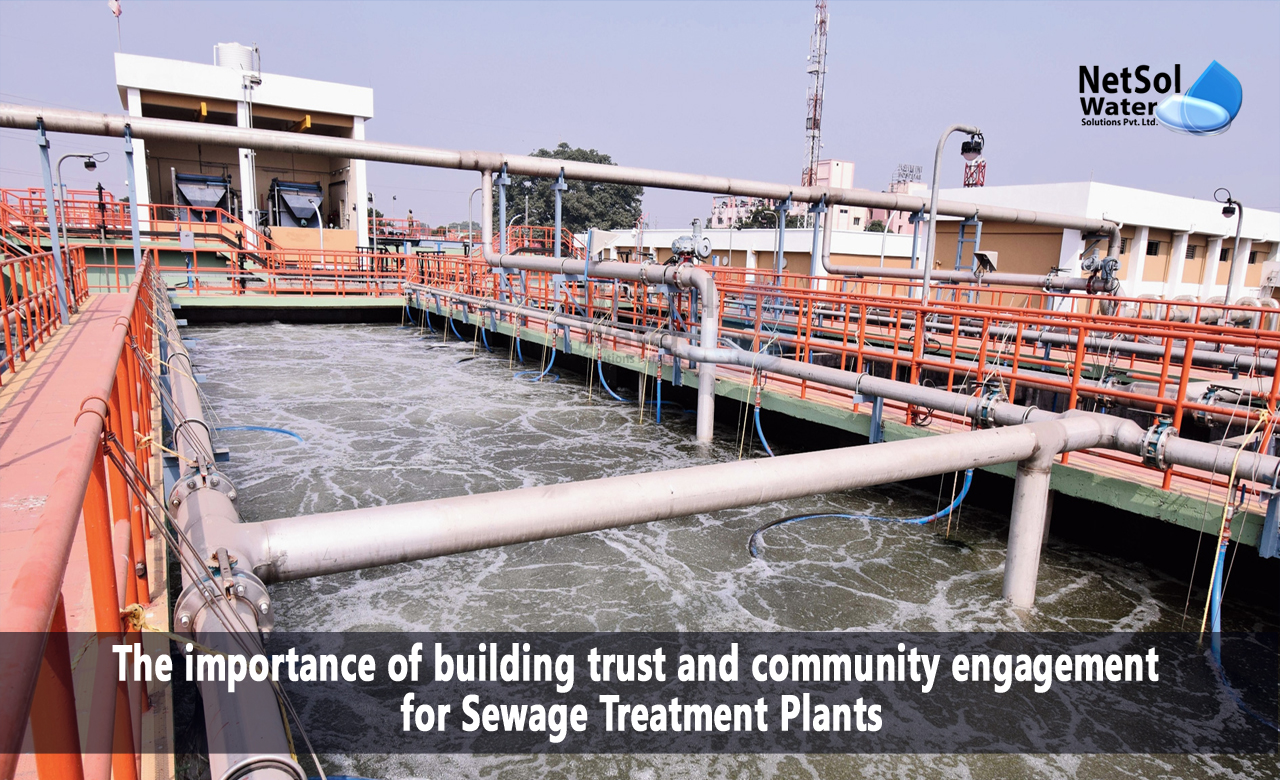Importance of building trust and community engagement for STP Plant
Sewage treatment plants (STPs) play a crucial role in managing wastewater and protecting public health and the environment. However, these facilities often face challenges in gaining public trust and engaging with the community effectively.
Now let us explore the importance of building trust and community engagement for sewage treatment plants and highlights strategies to overcome negative perceptions.
Understanding Public Perception
Public perception of sewage treatment plants is influenced by various factors, including preconceived notions, lack of awareness, and negative associations. Many people associate STPs with foul odors, pollution, and potential health hazards. These perceptions can hinder community acceptance and cooperation in the planning and operation of STPs.
Importance of Trust and Community Engagement
Building trust and fostering community engagement are crucial for the success of sewage treatment plants. When the public perceives a STP as transparent, accountable, and responsive to their concerns, they are more likely to support its development and operation. Engaging the community in the decision-making process instills a sense of ownership and enables the plant to address community-specific needs effectively.
Strategies for Building Trust and Community Engagement
These are the following points which can help us build trust and community engagement with regards to public perception of Sewage Treatment Plants:
1. Effective Communication: Clear and consistent communication is essential to dispel misconceptions and provide accurate information about STPs. Utilize multiple channels, such as public meetings, websites, social media, and newsletters, to reach a wider audience. Provide information in easily understandable language, addressing common concerns, and emphasizing the benefits of a well-operated STP.
2. Stakeholder Involvement: Involve stakeholders, including residents, community leaders, environmental organizations, and local businesses, in the planning and decision-making processes. Seek their input, address their concerns, and integrate their feedback to create a sense of shared responsibility. Regular meetings, workshops, and open forums can be valuable platforms for dialogue and collaboration.
3. Educational Programs: Develop educational programs to raise awareness about wastewater management, the importance of STPs, and their role in environmental protection. Target schools, colleges, and community organizations to engage younger generations and foster a culture of environmental stewardship. Promote hands-on experiences, guided tours, and interactive workshops to enhance understanding and dispel misconceptions.
4. Environmental Sustainability: Highlight the commitment of the STP to environmental sustainability. Implement eco-friendly practices, such as energy-efficient technologies, use of renewable energy sources, and water recycling initiatives. Share success stories and environmental impact assessments to demonstrate the positive contribution of the STP to the community and the ecosystem.
Community Benefits: Showcase the tangible benefits that a well-operated STP can bring to the community. Emphasize improved water quality, reduced pollution, protection of natural resources, and enhanced public health. Engage in partnerships with local organizations to support community initiatives, such as recreational facilities, green spaces, or educational programs, funded through the STP's resources.
Transparency and Accountability: Maintain transparency in operations, regulatory compliance, and monitoring practices. Establish mechanisms for public feedback and grievances, ensuring that concerns are addressed promptly. Regularly share reports and data on the STP's performance, effluent quality, and adherence to environmental standards to build credibility and foster trust.
Summary:
Public perception of sewage treatment plants can be improved through proactive efforts to build trust and engage the community. By adopting effective communication strategies, involving stakeholders, promoting educational programs, emphasizing environmental sustainability, showcasing community benefits, and maintaining transparency and accountability, STPs can overcome negative perceptions and develop a positive relationship with the public. This collaboration is vital for the successful implementation and long-term operation of sewage treatment plants, ultimately contributing to a healthier environment and improved quality of life for the community.
Leading manufacturer of sewage treatment plants in India.
Netsol Water is the leading manufacturer, supplier, and exporter of a quality selection of water treatment, and wastewater treatment products in India, by using advanced sewage treatment methods.
Netsol Water is Greater Noida-based leading water & wastewater treatment plant manufacturer. We are industry's most demanding company based on client review and work quality. We are known as best commercial RO plant manufacturers, industrial RO plant manufacturer, sewage treatment plant manufacturer, Water Softener Plant Manufacturers and effluent treatment plant manufacturers. Apart from this 24x7 customer support is our USP. Call on +91-9650608473, or write us at enquiry@netsolwater.com for any support, inquiry or product-purchase related query.



